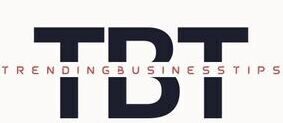How to Learn Programming Effectively

Learning programming effectively involves a combination of practice, persistence, and the right resources. But Before delving into that, let’s know about programming and the different types of it available to learn.
What is Programming?
Programming is the process of creating a specific set of instructions that need to be executed by a computer to achieve a particular result. These instructions are typically written using a formal programming language comprising a set of instructions its creator gives.
Some of the top Programming Languages available to Learn:
Python: Python’s versatility and ease of use have solidified its position as one of the most popular programming languages. Its applications range from web development and data analysis to artificial intelligence.
JavaScript: Javascript is a widely used language for web development; JavaScript remains crucial for building interactive websites and web applications. With the rise of technologies like Node.js and React, JavaScript has expanded its reach to server-side development and front-end frameworks.
Java: Despite being around for decades, Java is still widely used for developing Android apps, enterprise-level applications, and large-scale systems. Its robustness, platform independence, and wide adoption make it a valuable language to learn.
C#: Microsoft’s C# is commonly used for developing Windows applications, games, and enterprise software. It’s particularly prominent in the development of applications for the .NET framework.
HTML: HTML is a Hypertext Markup Language. It is used to design the basic architecture of any web page or website. Images, videos, and buttons can also be inserted into it.
CSS: It is known as a Cascading Style Sheet (CSS). It can be understood as an advanced form of HTML. CSS helps Web developers design fonts and add colors and aesthetics to a web page.
Rust: Rust has gained attention for its focus on safety, performance, and memory management. It’s particularly relevant for systems programming and creating reliable and efficient software and has gained traction in developing web applications and services.
After that, we read about programming & different types of programming languages; it’s time to learn how to learn a programming language to improve your tech skills. Here are some tips to help you learn programming efficiently.
Choose a Language:
Start with a beginner-friendly language like Python or JavaScript, then expand to other languages as you progress.
Understand Basic Concepts:
Focus on understanding basic programming concepts such as variables, loops, conditionals, functions, and data structures. These concepts are foundational in most programming languages.
Hands-on Practice:
- Code regularly to reinforce your learning.
- Start with simple programs and gradually move to more complex ones.
- Use online coding platforms, participate in coding challenges, and work on small projects to apply your knowledge.
Follow Tutorials and Courses:
Utilize online platforms like Coursera, edX, and Udemy and free resources like Codecademy, freeCodeCamp, and Khan Academy. Follow tutorials and courses that suit your learning style.
Read Documentation:
Read the documentation of the programming language and any libraries or frameworks you use. Understanding how to navigate documentation is a crucial skill for any programmer.
Contribute to Open Source:
Join open-source projects on platforms like GitHub. Contributing to projects allows you to work with experienced developers and gain real-world coding experience.
Learn Data Structures and Algorithms:
Familiarize yourself with common data structures (arrays, linked lists, stacks, queues, trees, graphs) and algorithms (sorting, searching, dynamic programming). Understanding these concepts will enhance your problem-solving skills.
Build Projects:
Start building your projects. This practical application will reinforce your learning and help you understand how to create a complete application from scratch.
Debugging Skills:
Learn how to debug your code effectively. Debugging is an essential skill that helps you identify and fix program errors.
Networking:
Connect with other programmers through online forums, meetups, and social media platforms. Networking provides valuable insights, advice, and potential job opportunities.
Practice Problem Solving:
Solve programming challenges on platforms like LeetCode, HackerRank, and CodeSignal. These platforms offer a variety of coding problems that can help improve your problem-solving skills.
Patience and Persistence:
Learning programming takes time and effort. Be patient with yourself, and don’t get discouraged by initial difficulties. Persistence is critical to mastering any programming language.
Related Article: Creative Ways to Develop Leadership Skills





